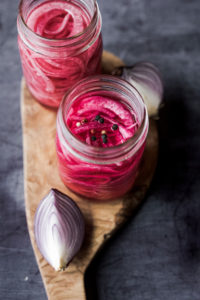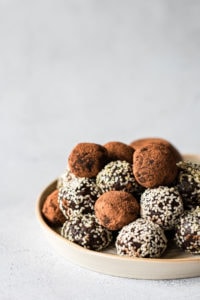If you couldn't tell, we're big fans of cinnamon. Earning the versatility award, this spice sneaks into a variety of dishes.

Did you know cinnamon comes from the bark of trees?
Trees of the genus Cinnamomum are native to Southeast Asia, South America and the Caribbean. Many cultures have been using cinnamon for hundreds of years, and unsurprisingly it's still a widespread spice today.
Wonderful flavors aside, cinnamon also boasts a number of healthy benefits. Cinnamon has been shown to lower triglycerides, reduce blood sugar for people with diabetes, and may help prevent Alzheimer's Disease.
Keep in mind that more research is needed to confirm these claims. But a tasty spice with a side of potential health benefits? I like my odds.
Cinnamon isn't some magic solution to all your health woes. But it is part of the healthy puzzle, which calls for real food and an active lifestyle.

Ceylon and Cassia are two common varieties of cinnamon
Native to Sri Lanka, Ceylon cinnamon is considered the "true" cinnamon. Ceylon is lighter in color, sweeter, and more delicate in flavor. It comes in "quills", which feel a bit like parchment paper.
Cassia cinnamon, on the other hand, is darker and thicker in texture. Native to Indonesia and China, Cassia tends to have a spicier flavor. Cassia is also the variety most commonly found in supermarkets, due to a smaller price tag.
Which variety of cinnamon is healthier?
The whole cinnamon family is loaded with antioxidants, which can reduce the risk of heart disease and cancer, potentially even fighting the HIV virus. Making it quite the powerful spice!
Though it's tough to pick out which one has more health benefits. But Cassia cinnamon has been found to contain higher levels of coumarin (a naturally occuring substance). Which makes Cassia potentially harmful in large amounts.
In high doses, coumarin can cause liver damage in sensitive individuals. Studies have found Cassia powder had up to 63 times more coumarin than Ceylon (which has ultra low levels). So take caution in consuming coumarin in large quantities over prolonged periods of time.
This is especially a concern for people who use cinnamon medicinally or in supplement form. As Cassia cinnamon has a higher risk, I recommend using
Not to worry though. Most of us don't need to be too concerned about liver damage from consuming too much cinnamon. But it's still worth noting, especially if you use cinnamon on a regular basis like we do!

The Bottom Line
Both varieties of cinnamon have potential health benefits. At this time it's not possible to say which one carries more health benefits. But we know that Ceylon cinnamon has less potential to cause harm when consumed regularly.
Either way, cinnamon is a great flavor addition to a range of dishes, with an added dash of healthy benefits.
How do you use your cinnamon?
Breakfasts, snacks, dinners, and desserts - we use cinnamon all over the place. Try your hand at homemade Cinnamon Spiced Applesauce. Enjoy our tasty Thai Green Curry. Or relax with a festive Mulled Wine.
An Added Note:
Although I am a dietitian, keep in mind that cinnamon should not be used instead of treatment for health conditions. And as always, consult your healthcare professional before changing your diet, or taking supplements or manufactured/natural medications.
Disclaimer: Some of the links above are affiliate links. This means that should you purchase something through the link, The Crooked Carrot will receive a small commission. The item cost remains the same regardless of whether you purchase through our link or not. Any commission earned simply helps us continue to provide all our great content to you. From seasonal recipes to simple nutrition insights & sustainable zero waste tips, we have lots more to give!










Leave a Reply